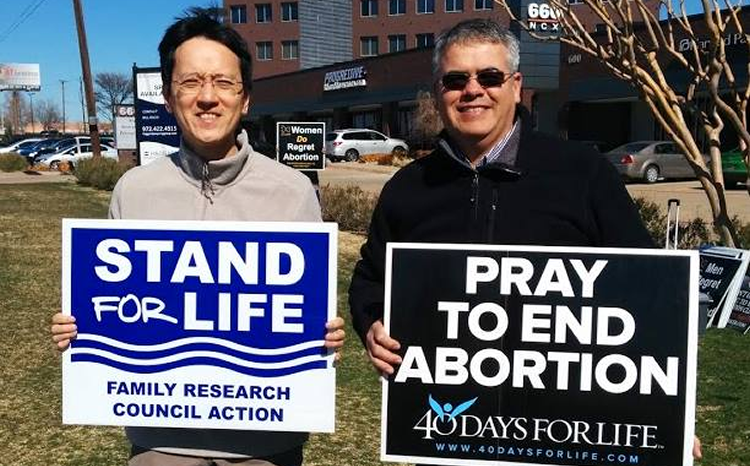Pro-life sidewalk counselors in Kentucky won a victory Wednesday when a federal appeals court blocked a Louisville buffer zone ordinance that prohibits them from peacefully reaching out to pregnant mothers within 10 feet of an abortion facility.
The Louisville Courier Journal reports the Sixth Circuit Court of Appeals ruled that the ordinance should be blocked because it likely violates the First Amendment.
The buffer zone “took a ‘toll’ on the speech of sidewalk counselors,” whose goal is “not to harass or protest” but to “offer a compassionate ear,” the court ruled.
In 2021, Sisters for Life and Kentucky Right to Life sued Louisville after the Metro Council passed the ordinance, which creates a 10-foot buffer zone around EMW Women’s Surgical Center, an abortion facility in the city. Anyone who violates the ordinance may be punished with fines up to $500.
Although the ordinance technically applies to all health care facilities in Louisville, it specifically mentions the abortion facility; and it was apparent from abortion activists’ and council members’ statements that restricting pro-life advocacy is the goal.
Statements from the EMW abortion facility, which urged city leaders to pass the ordinance, also suggest that. According to the newspaper, it “raised concerns about abortion protesters … gathering outside the clinic to urge patients, as they arrive or leave, not to get an abortion.”
Follow LifeNews on the Parler social media network for the latest pro-life news!
In its ruling Wednesday, the Sixth Circuit questioned why city leaders chose to enact a buffer zone rather than some other measure, according to the newspaper. The city said it wants to ensure “safe, unimpeded access to abortion facilities” and prohibit “obstruction of them.”
Here’s more from the report:
The court discussed whether the ordinance’s prohibition on obstructing access to health care facilities could sufficiently achieve its aims without the added buffer zone, and also suggested alternative ways to try to address certain protesters’ harassment of patients.
The court’s ruling describes the plaintiffs as wanting “to offer leaflets and compassionate, if sometimes unwelcome, speech to women entering abortion clinics in Louisville” and says the government’s ordinance “limited their speaking and pamphleteering” in buffer zones, which the court said likely violates their free-speech rights.
Separately, Kentucky abortion activists also are fighting in court to block the state abortion ban, which is saving hundreds of unborn babies’ lives. The law went into effect this summer and remains in effect.
Prior to the city vote last year, pro-life advocates told Metro City Council members that their goal is to offer women information and support to encourage them to choose life for their unborn babies.
“We just give them information. If they want it, that’s fine. If not, we’ll just say a prayer for them,” local pro-life advocate Ruth Anne Shumate-Reed told the city council last year. “We want to save those women, save those women and save their children.”
Despite what abortion activists often claim, pro-life sidewalk counselors are peaceful and compassionate. Being mean or harassing would harm their goal to offer assistance and help parents choose life for their babies.
Most pro-life sidewalk counselors are volunteers who stand outside abortion facilities in all kinds of weather to offer mothers support and save unborn babies from slaughter. Sometimes pro-life sidewalk counselors are victims of assault and harassment.
Pro-life sidewalk counselors do save lives. In 2020, Sidewalk Counselors for Life celebrated helping 10,000 mothers choose life for their unborn babies in its six years of ministry. They encourage mothers to give their babies a chance at life and connect them with community resources, including pregnancy resource centers, that provide financial and material help.
Buffer zones across the country are being challenged in court as a violation of free speech. While the U.S. Supreme Court did grant a victory to pro-lifers in a 2014 buffer zone case, it recently refused to hear two other cases involving pro-life advocates’ freedom to speak on public sidewalks outside abortion facilities in Pennsylvania and Chicago.
In 2014, the U.S. Supreme Court unanimously struck down a 35-foot Massachusetts buffer zone law. However, other smaller buffer zones still are in place across the U.S.








